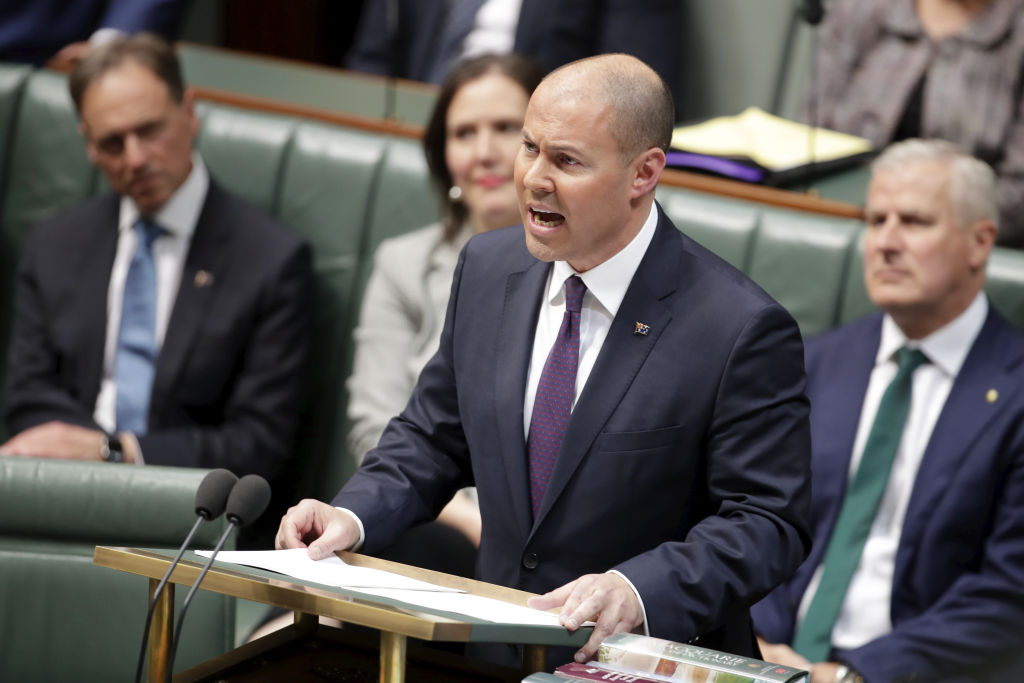
FIRB changes could give local buyers of commercial property a leg-up with vendors who need a quick sale
Owners of commercial property looking to quickly offload their assets may have to consider lower offers from Australia-based buyers or else brace themselves for longer closing periods in the wake of new rules for foreign investors, agents say.
The federal government has announced that all property purchases by overseas buyers will be subject to Foreign Investment Review Board approval.
Treasurer Josh Frydenberg said last week that the threshold required for a deal to be referred to the FIRB had been lowered to zero in an attempt to ward off any acquisitions that may threaten the “national interest”. It had previously been as much as $1.192 billion in some cases.
“These measures are necessary to safeguard the national interest as the coronavirus outbreak puts intense pressure on the Australian economy and Australian businesses,” Mr Frydenberg told the Australian Financial Review.
The changes cover investments ranging from businesses to property, with the commercial property market in Sydney having been particularly attractive to offshore capital in recent years owing to the low Australian dollar and the strength of the local property market.
Peter Vines, managing director of Ray White Commercial Western Sydney, said in his area the majority of commercial assets in the past 12 to 24 months valued above $20 million have been purchased by private high net worth offshore groups, with around 50 per cent of his sales in the past 12 months involving offshore capital.
“With these groups needing FIRB [approval], it may cause owners to look at transacting on lesser prices but ensuring greater certainty of getting a deal done,” he said.
The immediate result of the changes would be a blowout in the time it takes to complete a deal, with the government advising an increase in the maximum timeframe needed to process applications from foreign buyers from 30 days to six months.
“Offshore groups will be needing to allow longer periods of time for due diligence or conditional contracts [that are] subject to FIRB timeframes to be met,” Mr Vines said.
Foreign investment in the hotel sector varied significantly year to year, according to Andrew Langsford, senior vice-president, investment sales at JLL Hotels & Hospitality Group.
“In 2018 nearly 80 per cent of capital invested in hotel transaction was offshore, in 2019 only 40 per cent of capital was offshore, so it can fluctuate significantly,” he said.
Mr Langsford agreed that the changes would add to the amount of time required to close a deal but said they were unlikely to have a significant impact on overall transaction numbers.
“We do not expect that this rule will impact the number of transactions as much as other market forces which are currently present, however it will certainty add further time to close deals,” Mr Langsford said.
But while he doesn’t believe the changes will affect asset values, they may give a leg-up to local buyers.
“We believe that it is unlikely to impact asset values, but may give an advantage to local groups who will not require FIRB approval,” he said.
Mr Vines said values in his market would likely take a hit as a result of the changes but that the extent of this would depend on the vendor’s situation.
“I do think these changes could impact on commercial values particularly where vendors need quick sales as they are not able to rely on offshore groups with different investment criteria … I think the commercial investment market around Sydney will be the hardest affected by the changes as this is the preferred market within Australia for offshore capital,” Mr Vines said.
But despite the volatility that the coronavirus was currently having on investment markets across the world, the longterm fundamentals of Australian property would likely see foreign buyers happy to wait out the FIRB approval process if it meant they could secure a local foothold, Mr Langsford said.
“We anticipate that Australia will be viewed very positively in the region because of the strength of our health system, relative economic stability and real estate market transparency. If investors see value in Australian markets we expect deals to continue to happen, even if closing times are impacted.”
Mr Langsford said the sector had already withstood changes to FIRB criteria in previous years.
“The Australian hotel market has seen significant offshore investment over the years, through which time FIRB rules have continued to evolve and thresholds change. In this time we have not seen FIRB have a major impact on investor appetite.”
It’s the same story in western Sydney, where Mr Vines believes the perceived benefits of investing will likely convince most offshore groups that the wait is worth it.
“I believe that groups investing in Australia are doing so with a long-term view on the market and they won’t have choice but to comply with the new regulations if they want to invest here,” he said.










